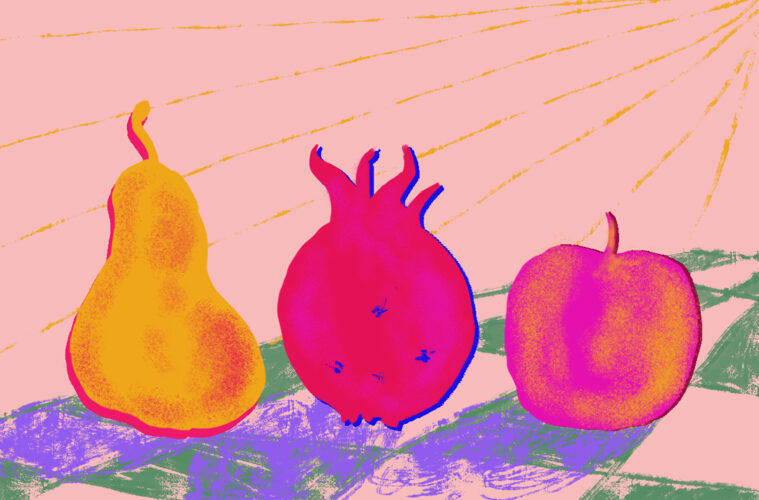In the early days of 2019, I went to a regular gynaecologist checkup where I got diagnosed with polycystic ovary syndrome (PCOS). It all sounded scary and elusive. Until then, I hadn’t experienced anything unusual other than not having a regular period. After the diagnosis, years passed by and I did not pay any special attention to it because there weren’t any visible signs of the illness until August 2021. One evening everything changed. After a never-ending horrible stomach pain and spasming, I was rushed into hospital.
By the time I got there, it was a life or death situation. I had one cyst ruptured which caused me internal bleeding. Now I have my scars as permanent reminders of the fact that taking care of your body is one of the most important things in life.
This is a very personal experience that made me realise that actually there isn’t much discussion around this topic, so let me try and spare you the struggle, by providing you with some useful information I wish I had known about PCOS.
What should you know about PCOS?
Polycystic ovary syndrome, which describes the numerous small cysts that form in the ovaries, is a complex hormonal condition. It is usually caused by the abnormal amount of androgens, male sex hormones, that are present in all women but usually in smaller amounts.
Because it is a complex syndrome, there are several visible signs that could mean you have PCOS:
- Obesity (no matter what diet you are working with, it is hard to lose weight)
- Too much hair growth especially in areas like your face, chest and back
- Hair loss, having bald spots
- Acne (especially on jaw area)
- Irregular cycles and very painful menstruation
- Painful sex
Also, not to mention PCOS can trigger anxiety, depression and mood swings.
Now let’s take a look at how to improve your health and lifestyle, to help manage symptoms of PCOS.

Possible diets and medications
First of all, if you experience any of these symptoms you should consult your doctor and have a full medical check-up. Diet, exercise and medication are all keys to battling PCOS. There should be a specific diet plan that doesn’t contain any sugar, refined flour or processed meat because all of these will cause more trouble to your sensitive system. I know it sounds bad, at first, I thought to myself, “This means no cake and tasty food anymore?”- but I had to realise that nowadays, there are tons of healthy food choices out there. You could always eat sugar-free cakes and drink lattes with alternative milk; the key is planning.
What also really helps me is doing exercise 2-3 times a week for at least 30 minutes. I recently started doing yoga to relax my body and mind, and to tone up a little, but choose the sport that motivates you to be your better self.
If you have insulin resistance like me, you might have to take specific medications that will improve your insulin sensitivity, while also eating 5-6 times a day the right amount of carbohydrates. The funny thing is that I was always hungry before and now that I am allowed to eat more than 3 times a day I feel happy and energised. You could see the positive changes in your body very soon.
There is another method to keep your cycle in check, though personally, I don’t recommend you do it. Taking contraception can change the cycle’s natural rhythm and is effective in stopping the cyst from growing. However, this method has a lot of side effects and if you have always been a “girl with a migraine” type then I don’t recommend you do this.
When something goes wrong…
Having a cyst is no fun: they can cause painful periods and sex, both of which are topics that may be hard to talk about for some. I think we women are taught to internalise these painful situations because it is “normal… it hurts for everyone… sex shouldn’t always be pleasurable, etc..” and all that sexist nonsense.
Let me state it clearly: no. It’s not normal and you don’t have to suffer just to be a “good girl”. For me, being a good girl meant having internal bleeding and being rushed to the hospital to have emergency surgery. I don’t think this should be the right way to finally acknowledge having a medical issue: you shouldn’t wait for the red light to change lifestyles.
So if you ever experience pain during sex, if your stomach pain won’t stop even after taking strong medication, please do not ignore the problem. PCOS is a treatable illness that shouldn’t ruin the happiest things in your life.
But if something really goes wrong and you have to have that surgery then be brave because you and your body got this! Laparoscopic surgery is a lower risk surgery that will “only” give you small marks on your belly – marks that you can be forever grateful for because they mean that you are alive. Yes, it will be tough, it is hard to walk again, even harder to feel like yourself again. But it makes you realise how much your body is capable of. And having scars are the ultimate testimonies of my triumph against PCOS for life.
Written and illustrated by Franciska Panda.
Franciska is a freelance illustrator and design theorist. She is mainly interested in feminist books, women’s lives in contemporary society, feminist art and health. Her goal is to bring interesting feminist topics into public discussion to raise awareness and to make you excited about thinking outside of the box.

